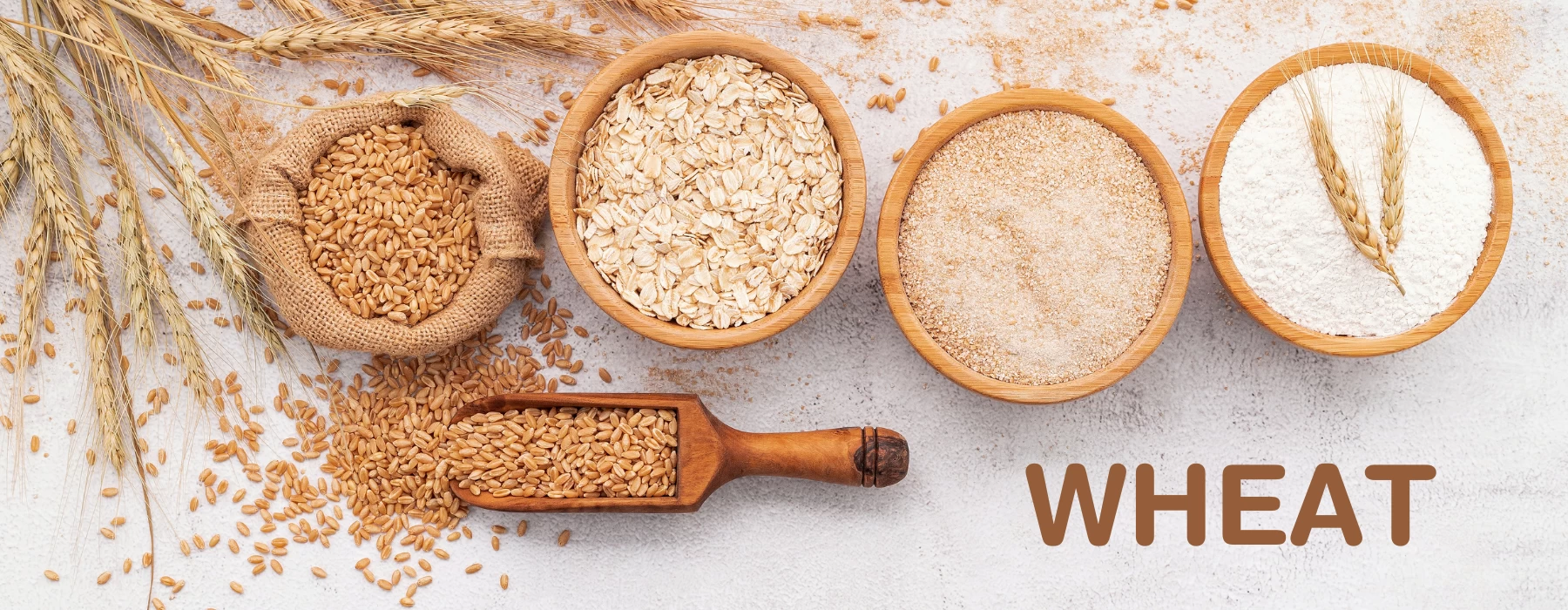Wheat
Wheat

It is one of the most used cereals worldwide. There are many food products based on wheat like bread, semolina, pasta, noodles, and bulgur (commonly called daliya in India). Nutritional facts about whote wheat flour per 100 gms:
|
Water |
11% |
|
Calories |
340 |
|
Carbohydrate |
72 gms |
|
Sugar |
0.4 gms |
|
Protein |
13.2 gms |
|
Fat |
2.5 gms |
|
Fiber |
10.7 gms |
The main nutrient content of wheat is carbohydrate. It contains significant amounts of fiber, which aids in digestion. The main protein found in wheat is gluten. Whole wheat flour is a good source of several vitamins and minerals, including selenium, manganese, phosphorus, copper, and folate. Wheat bran, present only in whole wheat, also contains antioxidants like, alkylresorcinols and lignans. Whole wheat, being rich in insoluble fiber, aids in digestion and reduces the chance of constipation. It is also known to reduce the chances of colon cancer.
Wheat has potential downsides also. It can cause celiac disease. It is caused due to a harmful immune reaction with gluten. Wheat sensitivity is another problem associated with wheat. It is called gluten sensitivity or non celiac wheat sensitivity. Wheat can worsen the condition of people suffering from irritable bowel syndrome. Allergy is also associated with wheat in some people. Wheat contains phytate, which hinders the absorption of some minerals like zinc and iron, taken in the same meal.
